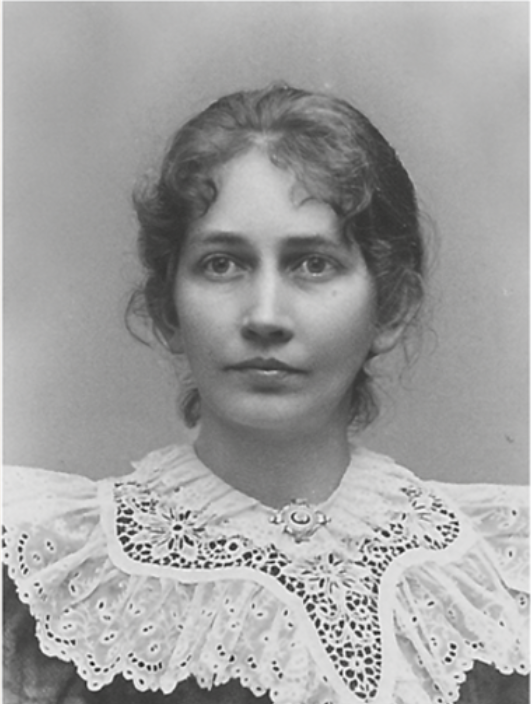TEKLA GRIEBEL WANDALL

1866-1940
– the musical talent with the duties of a man and the rights of a woman
You would have to look hard to find a more dynamic figure: Tekla Griebel Wandall was the daughter of a Tivoli Gardens musician and a teacher. She cultivated her own creative side with studies at the Drawing School for Women on H.C. Andersens Boulevard and private singing lessons, and when, at the age of 19, she first heard an opera, she made a firm decision to pursue the life of a composer – which for women of her generation meant a very difficult life.
At first, her prospects looked good. In 1888, she was admitted to the Academy on a scholarship. She also found work as a singer and accompanist, including for soloists at the Royal Danish Theatre.
However, the early death of her mother in 1891 proved a serious obstacle, and Tekla had to support
her father as a private teacher of singing and piano. In 1895 alone, she wrote a ballet called I rosentiden (‘In the Time of the Rose’) and the guide Musikalsk Børnehave (‘Musical Kindergarten’) in between these duties.
What’s more, her love life simply refused to go smoothly. For a long time she was in love with a married man, and when in 1900 she found her own husband, he was unfortunately a penniless theologian and writer – so now she also had to support him on top of everything else.
With time, things began to look up a little. For example, she had never managed to learn the proper use of the orchestra’s instruments, until that challenge was solved with a stay with the best teacher of the day in Dresden, with the help of money from a wealthy female friend.
Her husband’s death in 1917 also gave her more time to be creative. Tekla Griebel Wandall composed both a cantata to mark the reunification of Denmark in 1920 and a never-performed opera entitled Kong Hroars skjalde (‘The Bards of King Hroar’) five years later. Before long, she had also joinedw the growing women’s movement, writing a novel calling for more women in the workforce and more men at home in the kitchen.
The five songs from around 1893 were published by Henrik Hennings, who for many years was one of her biggest fans and most dedicated supporters. The opera Skjøn Karen (‘Lovely Karen’) from 1894 with text by Einar Christiansen – the later librettist behind Carl Nielsen’s Saul og David – was written at the request of Hennings.
Tekla Griebel Wandall knew her own worth. One day, the world would not care about her gender. “But by then she’ll be dead,” she wrote of herself to a friend.
Søren Schauser
| Collection | Op | No | Title | Poet |
|---|---|---|---|---|
| 5 Sange (1893) | 3 | Det bødes der for | Jens Peter Jacobsen | |
| 5 Sange (1893) | 4 | Stemning | Jens Peter Jacobsen | |
| 5 Sange (1893) | 5 | Genrebillede | Jens Peter Jacobsen | |
| 5 Sange (1893) | 1 | Hvad angår det dig | Christian K.F. Molbech | |
| 5 Sange (1893) | 2 | Rinda, min Brud | Adam Oehlenschläger |